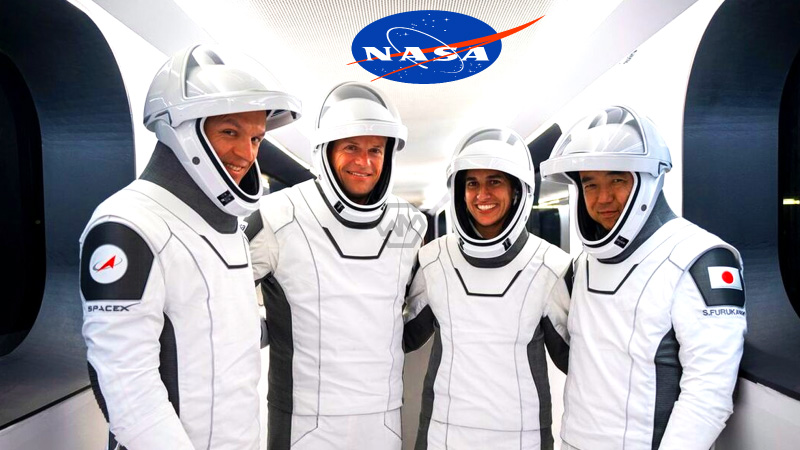- It is the primary space mission for both Moghbeli and Borisov.
- Its tasks are set to go on until something like 2030, after which it will be decommissioned and collide with the sea.
- A few privately owned businesses are dealing with business space stations to supplant it.
NASA and SpaceX’s Mythical Serpent shuttle launched on Saturday conveying four space explorers to the Worldwide Space Station.
The Team 7 mission is instructed by American Jasmin Moghbeli and incorporates Andreas Mogensen of Denmark, Satoshi Furukawa of Japan, and Konstantin Borisov of Russia.
Four Astronauts to the International Space Station
The Mythical serpent space apparatus conveyed by a Hawk 9 rocket took off at 3:27 am (0727 GMT) from Send off Complex 39A at NASA’s Kennedy Space Center in Florida before around 10,000 individuals accumulated to watch the send-off.
Cheers could be heard in the mission control room not long after the Mythical Serpent was created isolated from the Bird of Prey 9 rocket with the group in a circle.
The send-off was pushed back to Saturday to give designs an additional day to survey a part of the Team Mythical Serpent container’s natural control and life emotionally supportive network, NASA said in a blog entry.
Team 7 is set to be the seventh routine mission to the orbital stage for Elon Musk‘s SpaceX, with the primary coming in 2020.
NASA pays SpaceX for the taxi administration as a feature of a business group program that it set up to diminish reliance on Russian rockets for space explorer transport after the space transport program finished in 2011.
Boeing is the other contracted private accomplice, yet its program stays buried in postponements and specialized hardships. It has not yet flown any group.
Borisov will be the third Russian to fly on a SpaceX Team Winged Serpent container, fixed on a Bird of Prey 9 rocket.
Space stays an intriguing area of participation between the US and Russia regardless of Moscow’s intrusion of Ukraine, with Americans likewise proceeding to fly on board Russian Soyuz rockets that send off from Kazakhstan.
The objective is to comprehend the off chance that microorganisms can make due and replicate in space.
Another examination will expect to evaluate the physiological contrasts between rest on The planet and in space.
Group 7 will join the seven individuals currently on board the ISS before individuals from Team 6 leave for Earth a couple of days after the fact.
The principal fragment of the ISS was sent off in 1998, and it has been persistently possessed by a global team starting around 2001.



